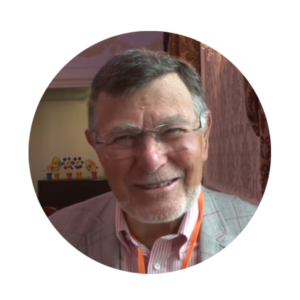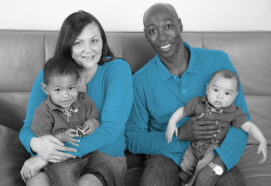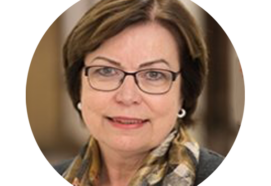This free session was the first of ACAMH’s Adverse Childhood Experiences (ACEs) Special Interest Group Monthly seminars, it discussed ‘Working with Unaccompanied Asylum-Seeking Young People’.
Dr. Ana Draper and Elisa Marcellino slides
Dr. Arnon Bentovim, Carol Jolliffe, and Sue Holmes slides
Working with Unaccompanied Asylum Seekers in Kent – Summary and recommendations
ACAMH Members can receive a CPD certificate, simply email and let us know the date and time that you watched the recording.
About the session
There are major concerns about the adversity suffered by Unaccompanied Children and Young people who seek Asylum in the UK. A recent Parliamentary Report expresses concerns that young people are placed in hotels for too long, with risks that they are at risk of disappearance and exploitation. There are lengthy waits before decisions are made about granting asylum which presents risks of self-harm and suicide. The trauma that young people may have faced before arriving in the UK can affect children for substantial periods, young people’s attempts to adapt to life in the UK may be made more difficult and may lead to mental health difficulties without a network of support. Waiting lists for mainstream services were lengthy.
This seminar reported two approaches to helping these young people. First we heard from Dr. Ana Draper and Elisa Marcellino about a project working with young people in Kent described as ‘Unaccompanied asylum-seeking children’ a vulnerable group exposed to multiple traumatic events such as persecution, sexual maltreatment, imprisonment, torture, and losses in their home country. They are also subjected to continuous transitions throughout their migration trajectory a move to a very different socio-economic system, shifts from their own culture to a foreign one, learning a new language, transitions in housing and school and the stress of age checking procedures and home office interviews to ratify their status. A solution to the extreme stressful responses was explored through sport.
Sport has been documented to be positively related to improving emotional well-being in young people. The Fast Feet Forward (FFF) protocol was introduced to groups of asylum seekers based on feet bilateral stimulation. Traditional EMDR procedure exposes clients to bilateral stimulation visual, auditory or sensory stimulation movements, this approach researched the efficacy of feet bilateral movements. Running involves moving both legs and arms bilaterally, in a form of rhythm like that of left and right stimulation through eye movement, used in EMDR, and over 10 sessions there were remarkable shifts. The work is being implemented in other contexts and is a valuable approach to working with young people who have been exposed to overwhelming adversity.
Secondly was Dr. Arnon Bentovim, Carol Jolliffe, and Sue Holmes on a pilot to develop and deliver training for foster carers looking after unaccompanied asylum-seeking children and young people. Foster carers had reported high levels of traumatic stress symptoms in these young people, and it was felt that training foster carers to help young people directly might be a helpful approach to mitigating these symptoms. The goal of the training was to share knowledge about adversity, stress, resilience and traumatic experiences of the children and young people in their care, the emotional and behavioural responses they have observed, and to develop additional skills to help their young people.
The first part of the training was a generic set of modules dealing with responses common to all children and young people who are exposed to high levels of stress including relaxation skills, being safe, managing feelings, and developing activities and coping skills. The second part is focused on addressing specific problems of anxiety low mood traumatic responses establishing a trauma narrative and modules on addressing disruptive behaviour and positive parenting managing challenging behaviour. Feedback on skills trained indicated many of the skills trained were valuable in helping these often deeply troubled young people who had been subjected to extremely stressful traumatic experiences both in their home countries, during their journeys, and in the UK.
About the speakers

Dr. Arnon Bentovim is a Child and Family Psychiatrist, and Director of Child and Family Training. He trained as a Psychoanalyst and Family Therapist and worked at the Great Ormond Street Children’s Hospital and the Tavistock Clinic. He is a Visiting Professor at the Royal Holloway University of London. At Great Ormond Street he shared responsibility for Child Protection at the Hospital and helped to initiate a number of services including the first Sexual Abuse Assessment and Treatment Service in the UK, and a Child Care Consultation Service. Research on Family Assessment formed the basis of the tools commissioned by the Department of Health to support the Assessment Framework. Child and Family Training was established to provide training and further developments.
Carol Jolliffe has worked for Child and Family Training since 2000 and is accredited as a trainer for the range of assessment and intervention tools. She has trained for Child and Family Training in a range of social care and health settings in UK, Ireland, Egypt, Cyprus, Sweden, Germany and Hong Kong. She is currently involved in developing their family work focused training courses. She has worked with children and families in social work and children’s mental health services since 1979. She qualified as a social worker in 1986 and has worked as a practitioner and manager in children’s residential and community settings, including a duty and assessment service and a national therapeutic residential resource. Carol additionally trained as a family therapist (and is also a qualified systemic supervisor) as part of her move to children’s mental health services. She now works as a consultant systemic psychotherapist and as clinical lead for family therapy in an NHS Trust. She has a private clinical practice, offering family therapy and assessments for prospective adopters and foster carers. She teaches on family therapy and clinical psychology training courses for the Tavistock Centre and Canterbury Christchurch University.
Sue Holmes is an experienced Kent Foster Carer who liaised with Dr. Arnon Bentovim and Carol Jolliffe in establishing the training, and participated in the training itself, providing a ‘Lived Experience’ of utilising the material with Unaccompanied Asylum-Seeking Children. She provided the observation they were mutually beneficial, and helped strengthen the attachment with the young people.
Dr. Ana Draper, Clinical lead and consultant systemic psychotherapist at The Tavistock and Portman NHS Foundation Trust. A ‘Clinically excellent’ published NHS consultant whose research and evidence-based practice has provided a gold standard, been policy changing and had a profound effect on the understanding of childhood bereavement. Ana possesses the rare ability to effectively research, strategise, advise and present her erudite findings to the government, yet twin this macro vision and input with a friendly approach to also implement at grass roots level through the provision of simplified practical layman resources and empathetic, individual personal care. She is looking to utilise her in-depth knowledge and well-honed skills to even greater effect.
Elisa Marcellino is a Clinical, Counselling and Health Psychologist. She has been working for many years with people presenting with multiple traumas and adverse life experiences across the lifespan. This includes working with unaccompanied minors, adopted children, young offenders and people with learning disabilities. She currently works for the National Health System as well as Improved Futures, a mental health consultancy company. Her work with Ana Draper has been published and presented internationally.
About the ‘ACEs SIG Monthly Seminars’
Everyone is welcome to our ‘ACEs SIG Monthly Seminars’ are free online webinars offering insights into the latest evidence-base around ACEs topic base. They are organised by the ACAMH ACE’s Special Interest Group. This SIG was established by ACAMH with representatives from related organisations, to help integrate and develop research and critical understanding of the complex nature of Adversity in Childhood, formulated as ‘Adverse Childhood Experiences – ACEs’ and the implication for practitioners across services for children and young people. The ACEs SIG is free to join, do please consider joining.




Discussion
Very informative and useful